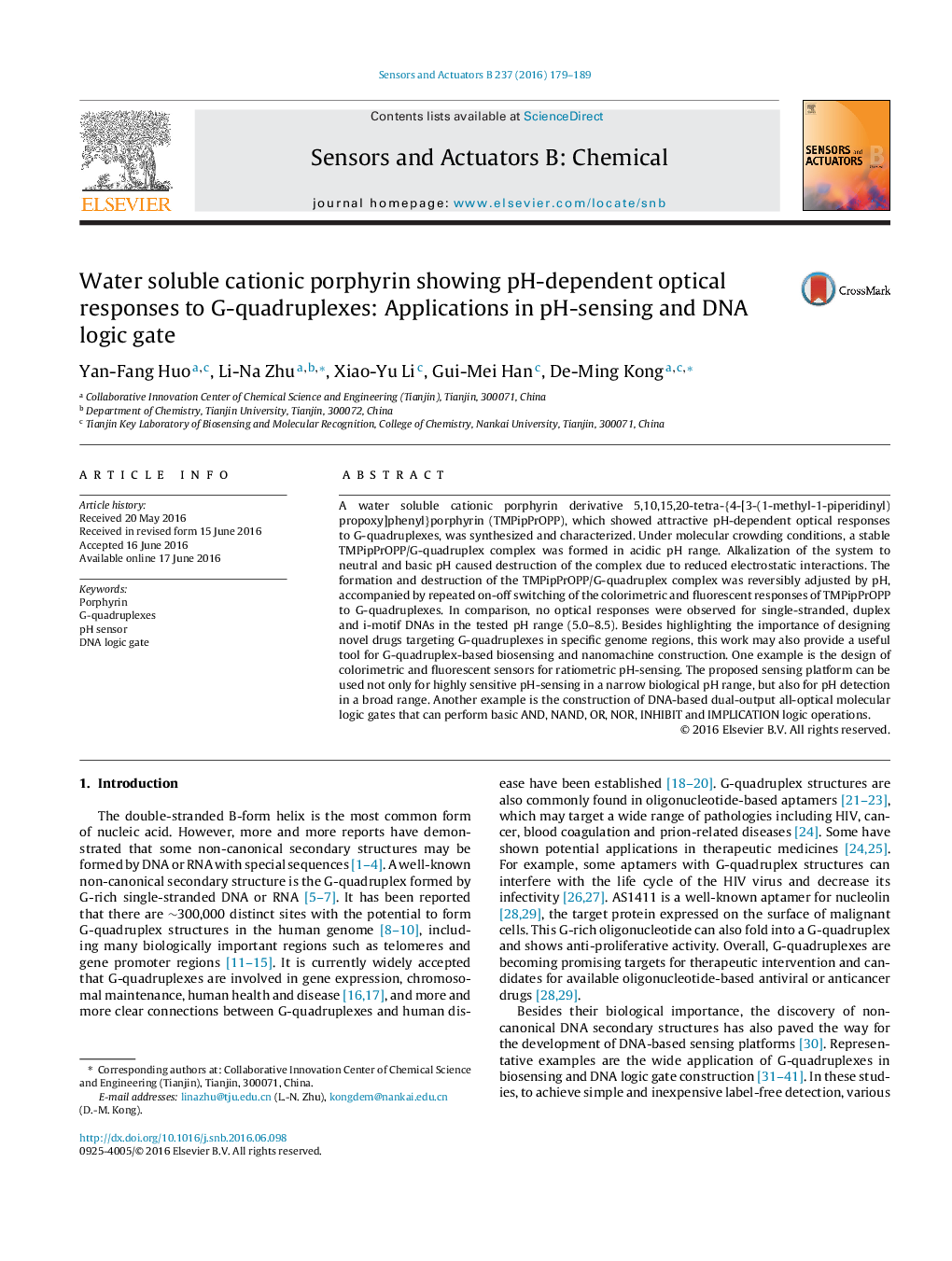| کد مقاله | کد نشریه | سال انتشار | مقاله انگلیسی | نسخه تمام متن |
|---|---|---|---|---|
| 742245 | 1462054 | 2016 | 11 صفحه PDF | دانلود رایگان |

A water soluble cationic porphyrin derivative 5,10,15,20-tetra-{4-[3-(1-methyl-1-piperidinyl) propoxy]phenyl}porphyrin (TMPipPrOPP), which showed attractive pH-dependent optical responses to G-quadruplexes, was synthesized and characterized. Under molecular crowding conditions, a stable TMPipPrOPP/G-quadruplex complex was formed in acidic pH range. Alkalization of the system to neutral and basic pH caused destruction of the complex due to reduced electrostatic interactions. The formation and destruction of the TMPipPrOPP/G-quadruplex complex was reversibly adjusted by pH, accompanied by repeated on-off switching of the colorimetric and fluorescent responses of TMPipPrOPP to G-quadruplexes. In comparison, no optical responses were observed for single-stranded, duplex and i-motif DNAs in the tested pH range (5.0–8.5). Besides highlighting the importance of designing novel drugs targeting G-quadruplexes in specific genome regions, this work may also provide a useful tool for G-quadruplex-based biosensing and nanomachine construction. One example is the design of colorimetric and fluorescent sensors for ratiometric pH-sensing. The proposed sensing platform can be used not only for highly sensitive pH-sensing in a narrow biological pH range, but also for pH detection in a broad range. Another example is the construction of DNA-based dual-output all-optical molecular logic gates that can perform basic AND, NAND, OR, NOR, INHIBIT and IMPLICATION logic operations.
Figure optionsDownload as PowerPoint slideA water soluble cationic porphyrin derivative, which showed highly specific and pH-dependent colorimetric and fluorescent responses to G-quadruplexes under molecular crowding conditions, was synthesized and characterized. Such optical responses can be switched on-off repeatedly by pH stimuli. Besides highlighting the importance of designing novel drugs targeting G-quadruplexes in specific genome regions, this finding may also provide a useful tool for G-quadruplex-based biosensing and nanomachine construction. As examples, colorimetric and fluorescent sensors for ratiometric pH-sensing were designed and DNA-based dual-output all-optical molecular logic gates that can perform several basic logic operations were constructed.
Journal: Sensors and Actuators B: Chemical - Volume 237, December 2016, Pages 179–189